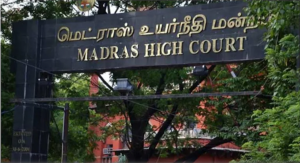 The Madras High Court in the case of RAMASAMY SINGARAVELAN (DECEASED) , REP. BY LEGAL HEIR- S. SUMATHI. VERSUS THE DEPUTY STATE TAX OFFICER, ERODE vide Order No. W. P. Nos. 28496 & 28499 of 2024 And W. M. P. Nos. 31070, 31071, 31072 & 31073 of 2024 dated 25.09.2024, has held that issuing notices and passing assessment orders in the name of a deceased person constituted a violation of natural justice.
The Madras High Court in the case of RAMASAMY SINGARAVELAN (DECEASED) , REP. BY LEGAL HEIR- S. SUMATHI. VERSUS THE DEPUTY STATE TAX OFFICER, ERODE vide Order No. W. P. Nos. 28496 & 28499 of 2024 And W. M. P. Nos. 31070, 31071, 31072 & 31073 of 2024 dated 25.09.2024, has held that issuing notices and passing assessment orders in the name of a deceased person constituted a violation of natural justice.
The judgment highlights the importance of adhering to procedural fairness, especially when dealing with cases involving deceased persons and legal heirs. It provides a clear framework for addressing such issues in GST matters.
Facts of the Case: In this case, the petitioner was the widow of the deceased proprietor Ramasamy Singaravelan, contended that the notices and assessment orders were issued in her late husband’s name, without her knowledge. She only became aware of the orders when the tax department initiated recovery proceedings via a phone call. Further, claimed that the orders were void ab initio since they were addressed to a deceased person, and she requested to be allowed to contest the matter as the legal heir.
The primary issue was that the tax notices and subsequent orders were issued in the name of a deceased person, Ramasamy Singaravelan, who had passed away in May 2022.
Held: The court observed that issuing notices and passing assessment orders in the name of a deceased person constituted a violation of natural justice. Since the assessment orders and recovery proceedings were ex parte i.e. issued without giving the petitioner an opportunity to respond, the court held that these orders were void ab initio.
Both writ petitions were allowed, and the petitioner was given the opportunity to present her case as the legal heir of the deceased proprietor. The court emphasized that the tax department should ensure compliance with the principles of natural justice.
To read the complete judgment 2024 Taxo.online 2327


